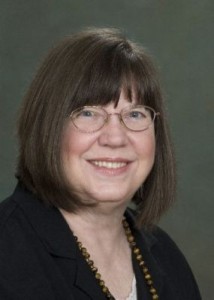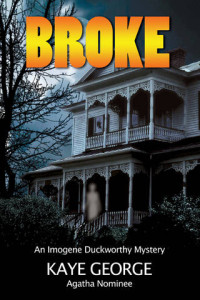I’m pleased to welcome Kaye George back to my blog. If you missed her earlier visit with the post, “Naming Characters, or How Imogene Came to Be,” you can click on the title link and get there in the blink of an eye.
Kaye George is a short story writer and novelist who has been nominated for Agatha awards twice. She is the author of three mystery series, the Imogene Duckworthy humorous Texas series, the Cressa Carraway musical mystery series, and the FAT CAT cozy series with Berkley Prime Crime. The last two will debut in 2013.
She reviews for Suspense Magazine, writes for several newsletters and blogs, and gives workshops on short story writing and promotion. Kaye is agented by Kim Lionetti at BookEnds Literary and lives in Texas, near Waco.
~~~~~~~~~~~~~~~~~~~~~~~~~
Writing Classes by Kaye George
Some people swear by them, some writers avoid them. I’m somewhere in between.
First off, I’ll say that there are some classes I’ve taken that have helped me immeasurably. My writing would be much poorer without them. I’ll add that others have done nothing for me, and one even threw me backwards. I think it took about a year to retrieve my manuscript from that one.
It was in another time and another place, and I’m not naming names. But I’ll tell you what happened so maybe you can recognize this if it happens to you, and recover more quickly than I did.
I was writing a traditional amateur sleuth, although I’m not sure I knew those terms back then. I just knew I was writing a mystery. In the terms I know today, I’d say it tended toward cozy. On the non-cozy side, I planned for the series to move around the globe. Other than that, it had the young female amateur sleuth, the trusty sidekick, the quirky local characters, and violence and sex either offstage or mildly stated. So, more cozy than not.
After a critique partner told me the pacing needed fixing, I took a class to help me out with that. My instructor latched onto one element, a former abusive boyfriend, and wanted me to ramp him up. I got excited. My pacing was being fixed! Publication was around the corner!
I could even have him show up dead (although I had no idea why anyone but the sleuth would kill him). I began the first scene in gritty Chicago instead of the lovely Illinois countryside. In fact, the action began in an echoing parking garage, shoes sounding a sharp staccato as bullets whizzed by her head.
My first scene came alive so well that, when it was randomly chosen to be read aloud at a small local conference, the attending publisher’s representative praised it and invited me to submit the whole manuscript. I read it over before sending it to him. Something was wrong. It didn’t quite hang together.
I found an editor who would look at my baby for $500. After she’d had my project for a couple of weeks, I came to her house for my evaluation. She gave me the verdict. My novel was schizophrenic. It didn’t know whether it was a thriller or a cozy.
After my initial disappointment (she didn’t LOVE my book???), I could see she was exactly right. I ripped out everything I’d done for that class and continued from there for a bit. Then I set it aside for a few years and wrote other things, short stories and more novels, eventually achieving publication for some of those.
Recently, I returned to that project, went through it with a much more experienced and dispassionate eye, and turned it into something. In fact, it’s now called Eine Kleine Murder and will be released by Barking Rain Press next spring.
I guess my overall takeaway from this is that I was green when I changed my story for every criticism. I needed to keep writing long enough to find my voice. When I was confident that I actually had one, and that, through my short stories, I knew that some people appreciated it, I could take classes and still hold onto my own voice, could develop my own style, and could know what to change and what not to change. I don’t know any easy way to get to this point. For me it was hard. I think it’s just a matter of time.
I’ve heard that the average time between starting to write seriously and getting work published is ten years. That’s about what it took me. If you’re unsure of what you’re writing, I guess my advice is, keep going for about ten years. Then you’ll be sure!
I don’t have a cover for that book yet, but we’ve shown the one for BROKE, the third book in my Agatha nominated Imogene Duckworthy series, humorous Texas mysteries. Try them if you need some laughs with your crime.
~~~~~~~~~~~~~~~~~~~~~~~~~
Thanks, Kaye. How much of our manuscripts to change for our critique groups and for instructor and freelance editor suggestions is a great topic. We have to be very selective about following all that advice, no matter how well-intentioned.
You’ll learn more about Kaye and her mysteries if you visit her website and blog (Travels with Kaye). She cal also be found on Facebook and Twitter.








Interesting post!
I’ve never taken a writing class. I don’t think I will anytime soon, either–I think I still need to solidify my voice more, though they sound like they could be a great resource.
Sorry I’m late checking in! Wonderful comments. As to the cost of writing classes, I’ve never paid more than $50, usually $20-30. Classes subsidized by the Guppies are always in this range and by excellent teachers. If you’d like to check out that organization, take a look at http://sinc-guppies.org/
Thanks to everyone for stopping by. Kaye is on a house hunting trip but will hopefully be stopping by later today to read and respond to comments.
And I’m heading off to a writing retreat in a couple of hours, so I’ll just wish everyone a wonderful weekend now.
never having taken any writing classes—i would be afraid of the same thing–my voice being changed–sounds like you figured it all out for now–i love this cover–and your books sound very tempting!!
Really interesing post. Writing classes can be so helpful – but you’re so right about knowing what works for your story & finding the advice that fits 🙂
Sometimes feedback might come with good intentions, but ultimately, we decide for ourselves whether to use it or to pass on it. Thanks for sharing your experience, Kaye.
Thanks for the great comments.
Alex, that’s an interesting way to approach critique partners…get published first. Some writers need more help though, and critique groups can be very helpful…or very destructive.
Jan, I’ve learned to listen to my own instincts as well. My critique group is pretty awesome and they have great ideas, but sometimes it’s just not the direction I want to go.
Dean, I’ve taken so many writing classes over the years you’d think I’d only produce bestsellers. The thing is, so much conflicting instruction and advice tends to drag us down, not build us up.
Elizabeth, I love the idea of beta readers but it hasn’t worked for me to use friends or relatives. They only say, “Great story. I love it.”
Lizy, we’re lucky to have several outstanding writing organizations in our state, and many of them offer inexpensive classes, expert speakers, and author panels. We can have our classes and our dental work too.
Writing classes? The trouble is getting to and/or affording them. Same goes for critiques – should one spend 500 on a critique or one’s ageing teeth?
I love the idea of learning knew techniques from writing classes (lectures), but I’m not as excited about the critiquing part…you just never know what you’re going to get. Always better to deal with a trusted editor or beta reader, I think, when you’re trying to find your way with a book. Interesting post!
An excellent post. I’ve taken a couple of classes/events. Likewise, even in my baby steps I’ve found the same result. Such is life.
I just hope to stay under the “average” until published. If not, maybe I’ll take another class.
Thanks Pat and Kaye
Thanks Pat for hosting Kaye and thank you Kaye for a very excellent post! It does take us awhile to listen to our own selves before and after listening to others. I appreciate my crit partners and comments I’ve gotten from judges on certain contests – but! I have to really listen to my own intuition and see where this sits in me. Usually if somebody says something that turns out to be useful I have a deep resonance with it immediately. If I feel nothing but confusion and childlike I say thank you but don’t use it.
Never taken a writing class, although I’m sure the suggestions of critique partners are similar. I guess it worked out for me that I didn’t have critique partners (outside of test readers) for my work until after my first book was published. They already knew my style of writing from the first book and their suggestions were in line with my writer voice.